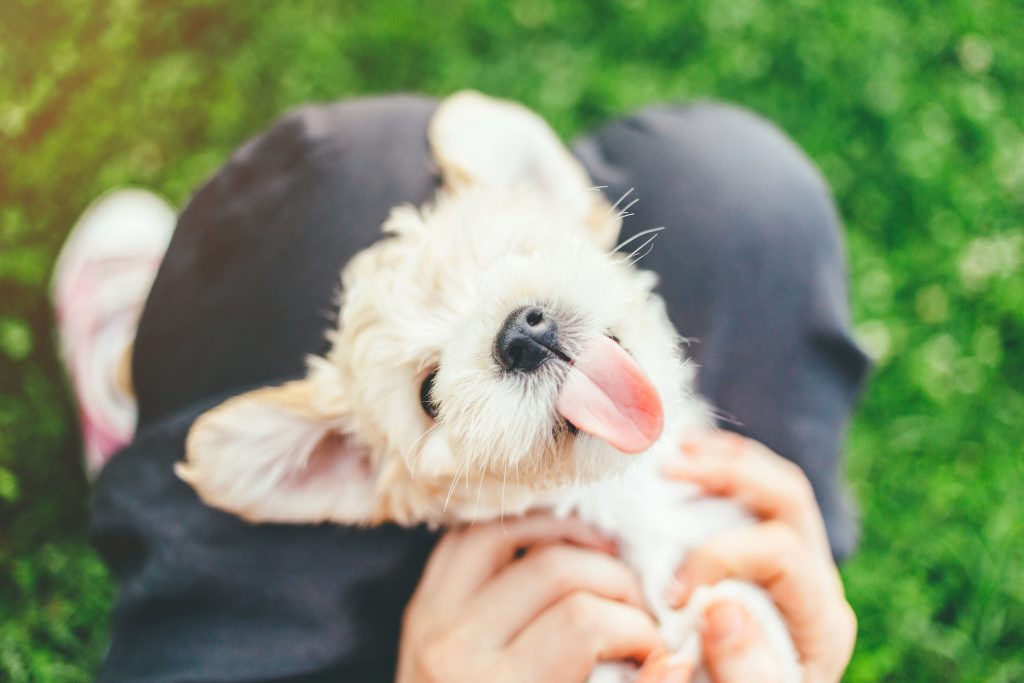The Marvelous Mutt: Why Mixed-Breed Dogs Make Great Pets
 The Westminster Dog Show (February 14–15) never fails to showcase the most exceptional of the purebred dogs. Dog enthusiasts everywhere have much to admire in the many beautiful, top notch qualities showcased in this fur-filled pageant.
The Westminster Dog Show (February 14–15) never fails to showcase the most exceptional of the purebred dogs. Dog enthusiasts everywhere have much to admire in the many beautiful, top notch qualities showcased in this fur-filled pageant.
There’s one breed you won’t find competing for Best in Show, and that is the mutt. Although mixed-breed dogs make an appearance in agility competitions, they won’t be winning the big award at the end of the night.
Indeed, humble mutts are rarely in the spotlight, but that hasn’t stopped them from becoming popular pets. There is much to love about mutts and so many reasons why they make wonderful pets!
Making a Difference
By adopting a mixed-breed dog from a shelter or rescue organization, you are truly saving a life. Removing a pet from the shelter system also frees up space and resources that can be used to help another homeless pet find a forever home.
Because many pets are the victims of unethical backyard breeding practices, you are also taking a stand against the “pets for profit” mindset when you adopt a shelter or rescued pet.
Easy on the Pocketbook
Your wallet will thank you for choosing a mixed-breed pet. Purebreds can come with a hefty price tag, and are often associated with more upfront veterinary costs, such as spaying and neutering. Most shelters or rescue operations won’t adopt out a dog until he or she has been spayed or neutered, vaccinated, and microchipped.
Mutts also tend to have fewer hereditary health concerns and specialized care needs than purebreds, thanks to their diverse genetic makeup. This means that the mutt is often sturdier and less expensive to own.
A Mixed-Breed State of Mind
Purebred dogs have been developed for specific tasks like herding, hunting, or guarding. Unless the owner has a specific need for the assets that a purebred dog brings, these traits can often become problematic. Dogs bred for outdoor activities and challenges tend to become frustrated if their high activity needs are not met on a regular basis. This commonly leads to behavioral and socialization problems that can be difficult to resolve. Because mutts are a conglomeration of traits, they tend to be more laid-back in temperament and, therefore, less demanding They can also be easier to train than their purebred counterparts and more adaptable to an owner’s activity level and lifestyle.
It’s important to keep in mind that, while genetics play a role in a specific dog’s personality traits, early socialization and training have a huge impact on a dog’s temperament and behavior as they mature. We always recommend obedience training to help your mutt get a great start on his or her relationship with you.
Something Unique
One of the most exciting things about mixed-breed dogs is that, unlike purebreds whose temperaments and physical traits can often be predicted, the mutt is truly unique. Because a mixed-breed pup is the result of at least two or more different breeds, he or she is likely to look and behave differently from any other dog.
Three Cheers for Mixed-Breed Dogs!
Although mutts tend to be more durable than purebreds, that doesn’t mean you can skip out on wellness exams and other veterinary health needs. We encourage all dog owners to adhere to their pet’s regularly scheduled wellness exams, and to follow their veterinarian’s advice for follow-up professional care and home care.
We love ALL dogs at Lone Tree Veterinary Medical Center! It’s our top priority to make sure that your pet has access to the highest quality medical care and that you also benefit from a personal relationship with our staff. We are here every day to help you make the informed choices that will keep your pet healthy and happy!



